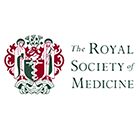What are brain health strategies ?
There is promising research showing that you can reduce your risk of Alzheimer’s and other dementias through a combination of simple but effective lifestyle changes and by leading a brain-healthy lifestyle, you may be able to prevent the symptoms of Alzheimer’s disease and slow down, or even reverse the process of deterioration. There are six important factors for a brain-healthy lifestyle which are as follows :
- Regular exercise stimulates the brain’s ability to maintain old connections, make new ones, and slow deterioration in those who have already started to develop cognitive problems.
- Social engagement.Staying socially engaged may even protect against Alzheimer’s disease and dementia in later life, so make developing and maintaining a strong network of friends a priority.
- Healthy diet. Eating a brain-healthy diet can help reduce inflammation, protect neurons, and promote better communication between brain cells.A healthy diet in this regard would include cutting down on sugary foods and refined carbohydrates,avoiding trans fats in fast food,fried and packaged foods ,eating more omega-3 fats and having more of a Mediterranean diet which means plenty of vegetables,beans ,whole grains, fish and olive oil and limited processed food and eating more fruits and vegetables.With regards to Vitamins and minerals -Folic acid,Vitamin B12,Vitamin D,magnesium and fish oil may help to preserve brain health.
- Mental stimulation. By continuing to learn new things and challenge your brain one can strengthen their cognitive skills and are less likely to develop Alzheimer’s disease and dementia,so the old adage “use it or lose it ” clearly applies in this situation.
- Quality sleep. Getting quality sleep can flush out brain toxins and avoid the build-up of damaging plaques.
- Stress management. Chronic or persistent stress can take a heavy toll on the brain, leading to shrinkage in a key memory area, hampering nerve cell growth, and increasing the risk of Alzheimer’s disease and dementia, however simple stress management techniques can minimize its harmful effects. Other tips to reduce the risk of Alzheimer’s are :
1) Stopping smoking-smoking is one of the most preventable risk factors for Alzheimer’s disease and dementia. When one stops smoking the brain benefits from improved circulation almost immediately.
2) Good Control of blood pressure and cholesterol levels. Both high blood pressure and high total cholesterol are associated with an increased risk of Alzheimer’s disease and vascular dementia.
3) Watching one’s weight -a major study found that people who were overweight in midlife were twice as likely to develop Alzheimer’s down the line, and those who were obese had three times the risk. So losing weight if indicated can go a long way to protecting your brain.
4) Drinking Alcohol in moderation-While there appear to be brain benefits in consuming red wine in moderation, heavy alcohol consumption can dramatically raise the risk of Alzheimer’s and accelerate brain ageing.
- Stress management. Chronic or persistent stress can take a heavy toll on the brain, leading to shrinkage in a key memory area, hampering nerve cell growth, and increasing the risk of Alzheimer’s disease and dementia, however simple stress management techniques can minimize its harmful effects. Other tips to reduce the risk of Alzheimer’s are :
The









